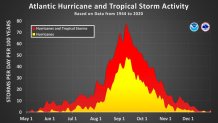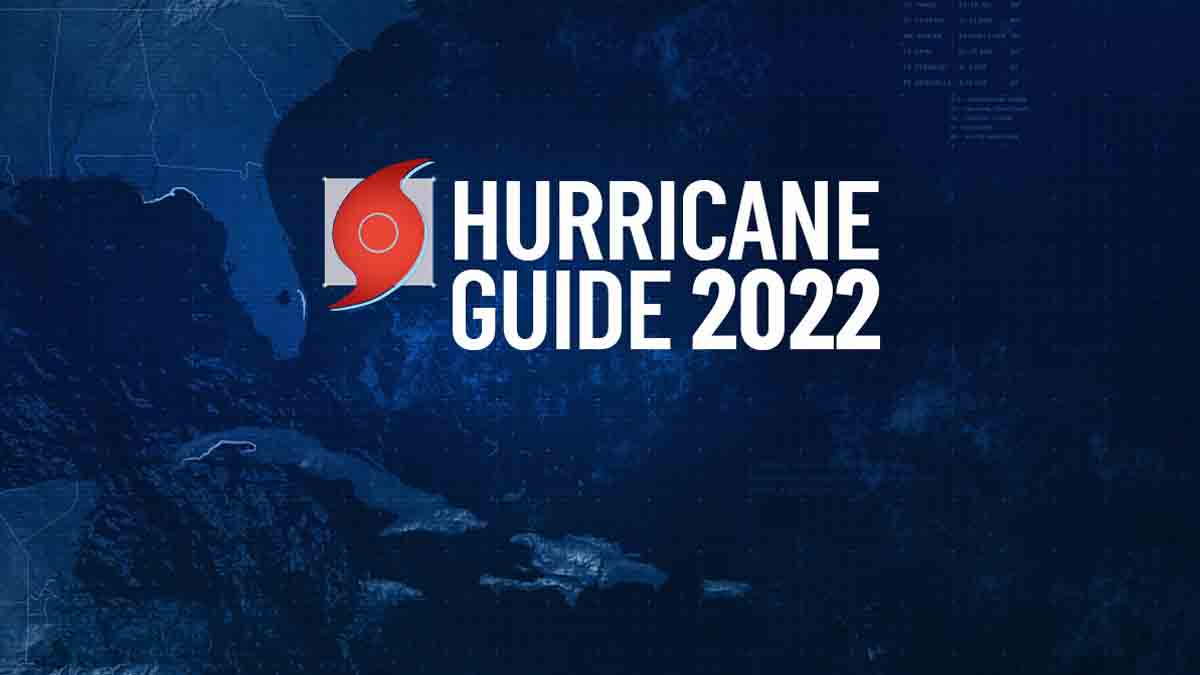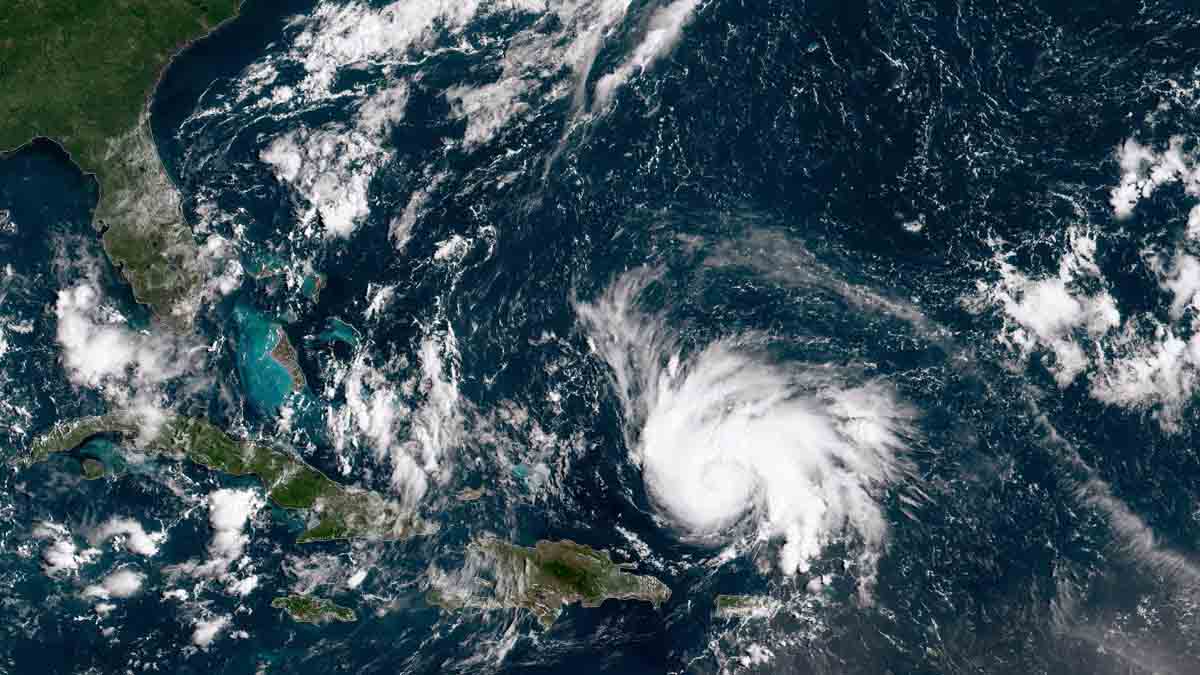While the 2022 Atlantic hurricane season has remained relatively quiet, the most important weeks are still ahead.
With the onslaught of forecasts pointing to an above-average season, one may be wondering just when the season will show its face.
Watch NBC6 free wherever you are
>Although that question is valid, it’s no secret that the most important part of the season is just ahead of us.
Following the progression of an average season, here’s a great illustration from NOAA of the Atlantic Basin ramping up through August, peaking in early to mid-September:
Get local news you need to know to start your day with NBC 6's News Headlines newsletter.
>
Tropical cyclones can and do form in any month, but the heart of the Atlantic season is just several weeks away.
While three named storms have already developed this year, these storms have accounted for an ACE (Accumulated Cyclone Energy) of only 2.8. According to Colorado State University data, that number would average around 6 at this point in the season.
Some may feel that three named storms may stand out as significant when the third named storm in the Atlantic Basin typically doesn't form around August 3rd.
But so far, 2022’s systems have proven relatively weak and short-lived.
2022 HURRICANE SEASON
Tropical Storms Alex and Bonnie didn't stick around for long, and this year’s third named system, Colin, came and went within 24 hours, concluding July 3rd.
Put simply, we're above-average on storm count, but they have not been storms of significance.
By this time (mid-July) last year, there were already three named storms and one hurricane, Elsa.
Going back to 2020, there were six tropical storms by this point in the year. You may recall that the 2020 season went on to produce a record 30 named storms.
Stepping back to 2019, only one subtropical storm and one hurricane had developed. How about 2018? Two hurricanes and one tropical storm had formed by mid-July.
Finally, reaching back to 2017, three tropical storms and one tropical depression had formed by this point.
But should June and July be the metric for which we judge the season? Simply, no.
Early season storms, sometimes called "home grown," meaning they form close the USA or a land mass, tend to be weak and disorganized.
That’s not to say that doesn’t happen later in the year, because it does (See: Ophelia, 2005).
But inching out of July and into August essentially turns the page into the core of the season.
This is often the time we turn our attention to waves firing from off the coast of Africa, the seedlings of possibility in the tropics.
We’re upon the time that storms form and feed off an oceanic environment conducive and supportive of their longevity. The time of the year when storms can grow mighty in size and strength.
The seasonal forecasts still point to that likelihood, too.
As of the July 7th update, Colorado State University’s forecast remains focused on 20 named storms, 10 hurricanes and five major hurricanes. The next update to this forecast will be released August 4th.
The National Oceanic and Atmospheric Administration's seasonal forecast from late May calls for 14-21 named storms, 6-10 hurricanes and 3-6 major hurricanes. The forecast will be updated midway thought August, as the peak of the season approaches.
Keeping in mind that the most important part of the hurricane season is to come, use this time to review your hurricane plan, evaluate your supplies and review your insurance coverage. While it may prove inconvenient to do now, it will pay dividends should a system head for South Florida and the Keys later this season. It’s never too late to be pro-active, especially within this season’s lull.
Remember, it’s not over ‘til it’s over.
Climatologically, the Florida peninsula remains vulnerable to tropical systems late in the season, too. Search "Wilma, 2005" for a refresher.
But it doesn’t have to be a Wilma-type hurricane. Tropical Storm Eta in November of 2020 serves as another reminder that the season can have many twists and turns until it concludes.
But before it ends, it will have to begin. That time is coming soon.



